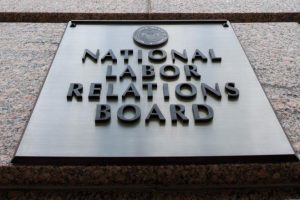Angel Aloma is mad as hell and he’s not going to take it anymore. But he wants you to do something about it.
“I’m not angry, I’m outraged. I need you to be outraged, enough to take action, because we all have this feeling of complacency,” said Aloma, executive director of Food For The Poor (FFTP).
In fiery remarks before the Direct Marketing Association Nonprofit Federation’s (DMANF), Aloma, chairman of the DMANF’s Advisory Council, urged members to call the U.S. Capitol Switchboard (202-224-3121) and express their displeasure with S. 1486 simply: “It sucks.”
Aloma was part of an ad hoc, three-person panel at the DMANF conference discussing postal reform and a recent Senate bill that could spell bad news for nonprofit postal rates. Postal Regulatory Commission (PRC) Chairwoman Ruth Goldway was scheduled to open the conference Thursday morning at the Renaissance Hotel in downtown Washington, D.C. but was thwarted by the snowstorm that pummeled the East Coast overnight.
The Postal Reform Act of 2013 was marked up by the Senate Homeland Security and Governmental Affairs Committee last week and released it for a full vote of the Senate. A key amendment by Tammy Baldwin (D-Wisc.) that would have limited future postal increases to the Consumer Price Index (CPI) was superseded by a new amendment from Chairman Tom Carper (D-Del.) and Ranking Member Tom Coburn (R-Okla.) that allows for increases of 1 percent above CPI overall, and 2 percent average by class. The bill also would make permanent the currently temporary 4.3-percent exigent increase that went into effect last month, on top of a 1.7-percent increase.
Coconut Creek, Fla.-based Food for Poor spends $6.5 million annually on postage. The current version of the Senate bill could increase postal costs as much as 8 percent annually, essentially doubling them in nine years. Increasing costs would have a chain reaction on other parts of nonprofit organizations, whether affecting jobs or other areas of an organization’s budget, Aloma said. “Nine years from now, we’d have to find another $6.5 million,” he said. That could mean 100 million fewer meals of rice and beans in the 17 countries the organization serves, or 2,000 fewer homes if the nonprofit were to make cuts from its housing budget. Cuts to FFTP’s water projects would mean 1,226 fewer wells.
Tom Harrison of Russ Reid Company, a member of the DMANF Leadership Committee, said it’s important to continue to have a dialogue with Goldway and the PRC. “Should there be a Hillary Clinton administration, I wouldn’t be surprised to see her [Goldway] playing an important role. Once again, it will be important to have a dialogue with her,” Harrison aid. In a recent meeting with Goldway, he stressed the importance of postal rates not only on the nonprofit community but the people they served, whether it’s children with cancer or struggling families. “Nonprofits have fairly fixed budgets. When you raise the rates, they mail less. If they mail less, they have fewer donors and less net revenue,” Harrison said.
While some members of Congress are well meaning when they advocate that nonprofits use email, Harrison said that’s just not how it works. “Mail really works for nonprofits. You’ve gotta do all of it – TV, online, events – but you can’t do it without mail,” he said.
S. 1486 would be “very bad for the Postal Service, Harrison said, and Goldway is committed to limiting the bill but nonprofits must help. With all of the competing interests in Congress, Harrison said the chances of postal reform being passed any time soon appear bleak. “Our job is to make sure the current bill they’re looking at now does not pass. It’s not good for the Postal Service, it’s really bad for us,” he said.
“We must protect the nonprofit rate and ensure we continue have a preferred nonprofit rate,” said Xenia “Senny” Boone, DMANF general counsel. The Senate bill would allow an increase of CPI plus 2 percent by rate class, which could be devastating because it could appear that some classes, like standard or periodical, look like they “are under water and not paying their fair share of postal costs,” she said.
The Senate bill isn’t just bad for nonprofits because of permanent rate hikes. Boone said the PRC would be “defanged a bit” and while the entity still would be able to veto the rate-setting process, it would be removed from a prior review of rate increases. Instead, she said, the DMA would have to go through the complaint process.










